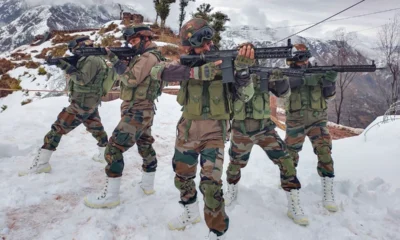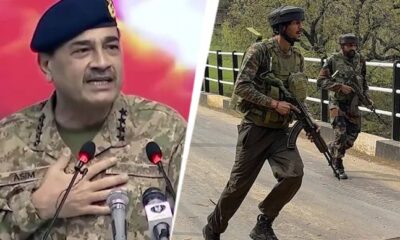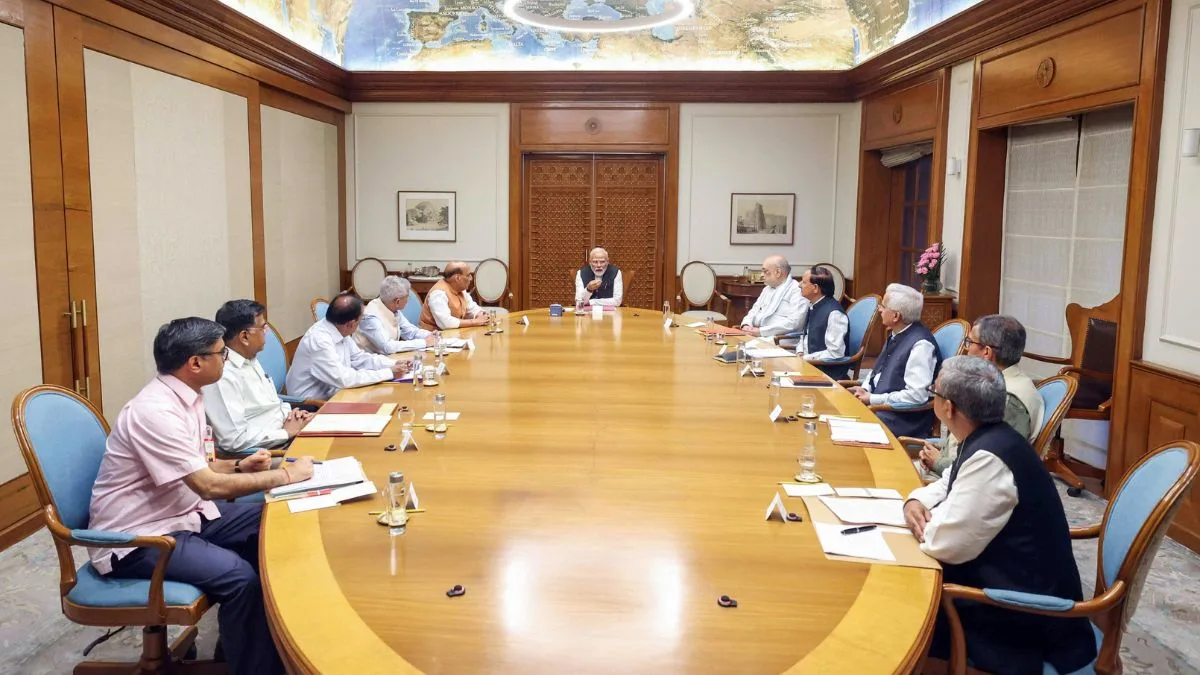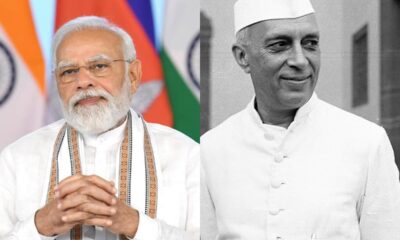Five Key Decisions Taken at CCS Meet Following Pahalgam Terror Attack:
- Suspension of the Indus Waters Treaty (1960): The treaty is held in abeyance with immediate effect until Pakistan credibly and irrevocably ends its support for cross-border terrorism.
- Closure of the Integrated Checkpost at Attari: The checkpost will be closed immediately, with Pakistani nationals who have crossed over allowed to return through that route before 1st May 2025.
- Suspension of SAARC Visa Exemption Scheme for Pakistan: Pakistani nationals will no longer be permitted to travel to India under this scheme. All Special Pakistan Exemption Scheme (SPES) visas previously issued are now cancelled, and those currently in India have 48 hours to leave.
- Expulsion of Pakistani Diplomatic Staff: Defence, Military, Naval, and Air Advisors at Pakistan’s High Commission in New Delhi are declared persona non grata, with one week to vacate India.
- Withdrawal of Indian Defence, Navy, and Air Advisors from Islamabad: India will withdraw its own advisors from the Indian High Commission in Islamabad, and these posts are deemed annulled.
In a bold and swift response to the Pahalgam terror attack that tragically took the lives of 28 people, mostly tourists, the Indian government has taken decisive steps to safeguard national security and hold Pakistan accountable for its alleged support of cross-border terrorism. The Cabinet Committee on Security (CCS), chaired by Prime Minister Narendra Modi, convened on Wednesday to deliberate on the country’s response to the attack. The outcomes of the meeting have reshaped India’s approach to Pakistan and set a new tone in diplomatic relations and security strategy.
The CCS meeting culminated in five key decisions that highlight India’s firm stance on combating terrorism and its evolving policy on its troubled neighbor. These measures are expected to reverberate across regional geopolitics, sending a strong message to Pakistan while addressing both the immediate security concerns and broader diplomatic challenges.
1. Suspension of the Indus Waters Treaty (1960)
The most significant move from the CCS meeting was the suspension of the Indus Waters Treaty, which has governed water-sharing between India and Pakistan for over six decades. The treaty will remain in abeyance until Pakistan demonstrably and irrevocably ends its support for terrorism directed at India. This unprecedented decision reflects India’s frustration with Pakistan’s failure to curb cross-border terrorism, and the government has made it clear that it will not continue business-as-usual under these circumstances. The Indus Waters Treaty, a cornerstone of bilateral relations, is now linked to Pakistan’s commitment to peace and stability in the region.
2. Closure of the Attari Integrated Checkpost
In an immediate action to tighten security, the CCS decided to close the Attari Integrated Checkpost, a key border crossing between India and Pakistan. The decision is aimed at preventing any potential security threats from crossing into India through this route. However, Pakistani nationals who have entered India with valid endorsements will be allowed to return via the same route before 1st May 2025, ensuring that the move does not completely sever civilian ties but maintains a heightened security posture. This decision underscores India’s focus on border control and vigilance.
3. Suspension of the SAARC Visa Exemption Scheme
Pakistan’s nationals will no longer be eligible for travel to India under the South Asian Association for Regional Cooperation (SAARC) Visa Exemption Scheme. This move is designed to limit people-to-people exchanges and tighten India’s diplomatic leverage. The government has also cancelled all Special Pakistan Exemption Scheme (SPES) visas issued in the past, effectively restricting the movement of Pakistani nationals in India. For those currently in the country on SPES visas, India has given a 48-hour window to leave, reflecting the urgency of the government’s stance on national security.
4. Expulsion of Pakistani Diplomats
In a significant diplomatic action, the Defence, Military, Naval, and Air Advisors at the Pakistani High Commission in New Delhi have been declared persona non grata. They have one week to vacate the country. This decision is a direct response to Pakistan’s continued support for terrorism and its failure to take meaningful action against terrorist organizations operating from its soil. India has also signaled a reciprocal measure by withdrawing its own Defence, Navy, and Air Advisors from the Indian High Commission in Islamabad, leading to the annulment of these posts. The expulsion of key diplomats further isolates Pakistan diplomatically, intensifying pressure for a recalibration of its policy on terrorism.
5. Withdrawal of Indian Defence Advisors from Islamabad
In a reciprocal action that reinforces India’s commitment to national security, the country has decided to withdraw its Defence, Navy, and Air Advisors from the Indian High Commission in Islamabad. These posts, which have traditionally facilitated military and defense dialogue between the two nations, are now annulled. This decision aligns with India’s broader strategy of diplomatic isolation for Pakistan, signaling that the government views the ongoing terrorism threats as a critical issue that requires stringent measures.
The Bigger Picture: A Firm Response to Terrorism
Foreign Secretary Vikram Misry, in his address following the CCS meeting, affirmed that India would leave no stone unturned in its pursuit of justice. “The perpetrators of this attack will be brought to justice, and their sponsors will be held accountable,” Misry stated. He pointed to the recent extradition of Tahawwur Rana as a testament to India’s unyielding determination in fighting terrorism through international cooperation.
Defence Minister Rajnath Singh echoed these sentiments, promising a “loud and clear” response to the Pahalgam attack. “We will hunt down not only the perpetrators who carried out this ghastly attack but also those behind the scenes,” Singh asserted, signaling India’s expanded counter-terrorism efforts.
Looking Ahead: A Tougher Stance on National Security
India’s actions following the Pahalgam attack represent more than just an immediate security response—they signal a shift in India’s diplomatic and security posture vis-à-vis Pakistan. With each decision, the government is reinforcing its stance that Pakistan must take responsibility for its role in cross-border terrorism.
This new approach is also a reflection of India’s broader strategy to prioritize national security over diplomatic niceties, even at the cost of escalating tensions with its neighbor. The suspension of the Indus Waters Treaty, in particular, sends a powerful message that India will not tolerate terrorism at any cost. As the situation unfolds, the international community will closely monitor how these measures impact bilateral relations, regional security, and the broader South Asian landscape.
In conclusion, India’s decisive response to the Pahalgam terror attack is a clear demonstration of its resolve to protect its citizens and defend its sovereignty. With these five key decisions, India is drawing a firm line, making it clear that terrorism cannot be tolerated, and that accountability is paramount in the face of such tragedies.

 Culture & Society2 months ago
Culture & Society2 months ago
 Culture & Society2 months ago
Culture & Society2 months ago
 Opinion2 months ago
Opinion2 months ago
 Tech2 months ago
Tech2 months ago
 Business2 months ago
Business2 months ago
 Culture & Society2 months ago
Culture & Society2 months ago
 Culture & Society2 months ago
Culture & Society2 months ago
 iNational Indic2 months ago
iNational Indic2 months ago



















